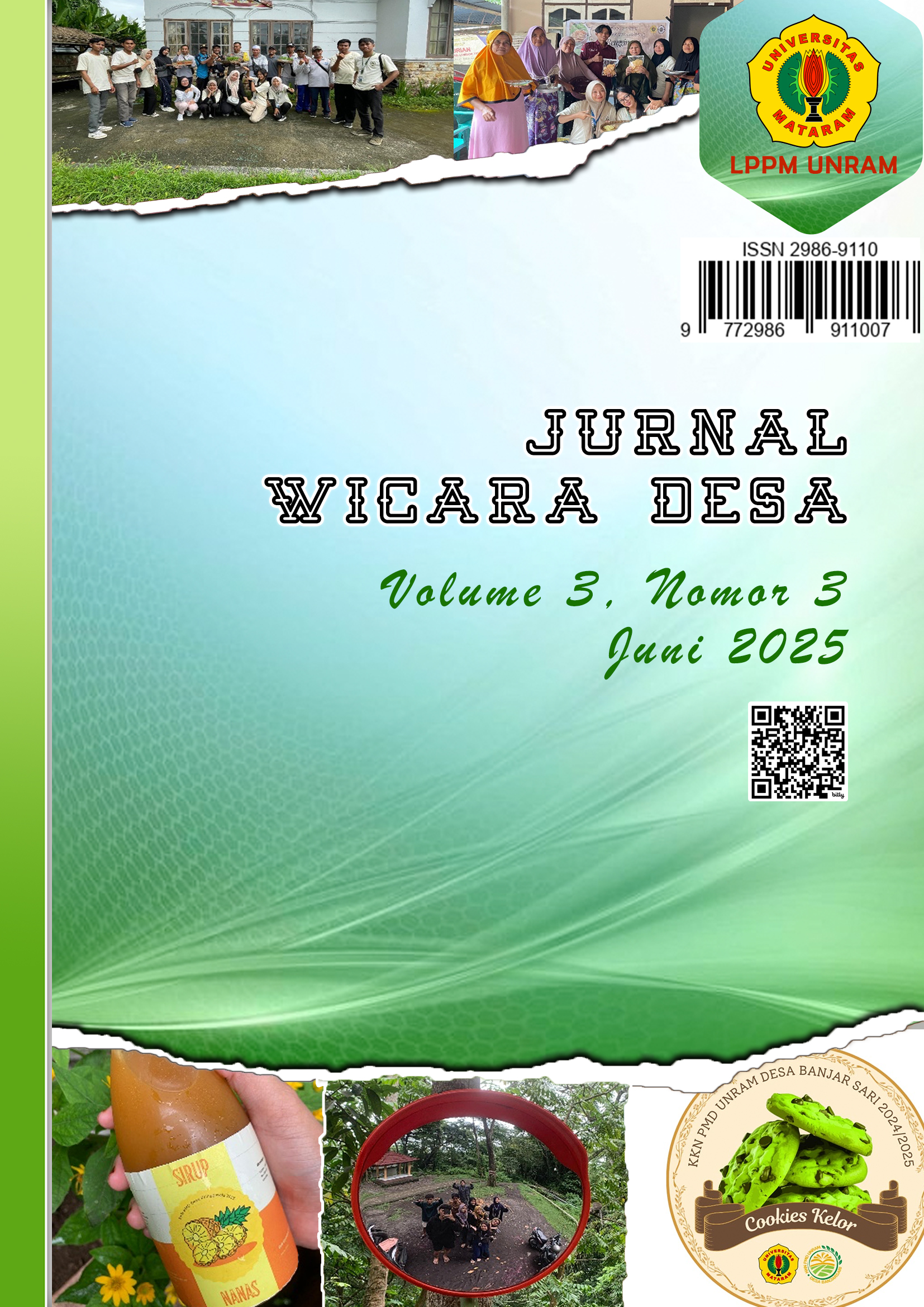Design And Development Of Sintung Park Landscape As Sustainable Agrotourism
DOI:
https://doi.org/10.29303/wicara.v3i3.6748Keywords:
sintung village, agro-tourism, landscape, eco-friendly, local economyAbstract
Community Service Program (KKN) is a form of community service activity conducted by universities. In the KKN activities carried out in Sintung Village, Pringgarata District, Central Lombok Regency, a group of students carried out various activities with the main focus on mapping and developing village potential. This activity aims to develop Sintung Village as a sustainable landscape-based agrotourism destination. The methods used include preliminary studies, landscape design planning,and local community involvement. The results of the activity show an increase in community awareness of agrotourism potential, the formation of environmentally friendly landscape designs, and the improvement of supporting tourism facilities. The conclusion of this activity is that the development of landscape-based agrotourism in Sintung Village has great potential to improve the local economy and preserve the environment.References
Booth, N.K. 2022.Foundations of Landscape Architecture: Integrating Form and Space Using The Languange of Site Design.New Jersey: John Wiley & Sons, Inc.
Felia, S., Katoppo, M.L., & Hidayat, J. 2016. Model Pengembangan Kampung Berkelanjutan dengan Metode Participatory Design (studi kasus: kampung mauk, tangerang). Karawaci: LPPM UPH.
Susinety,Prakoso.2018. Perancangan Lansekap Taman Dan Penempatan Rumah Doa. Universitas Pelita Harapan, Fakultas Desain, Program Studi Arsitektur, Tangerang.
Sri,Kurniawati.2018. Pembangunan Infrastruktur Dan Pertumbuhan Ekonomi Di Provinsi Kalimantan Barat. Fakultas Ekonomi dan Bisnis, Universitas Tanjungpura.
World Tourism Organization. (2019). Sustainable Tourism Development Guidelines. Madrid: UNWTO.
Badan Pusat Statistik. (2023). Statistik Pariwisata Indonesia 2023. Jakarta: BPS.
Bintarto, R. (2018). Pengembangan Pariwisata Berbasis Masyarakat. Yogyakarta: Pustaka Pelajar.
Creswell, J. W. (2016). Research Design: Qualitative, Quantitative, and Mixed Methods Approaches. California: SAGE Publications.
Kementerian Pariwisata dan Ekonomi Kreatif. (2020). Panduan Pengembangan Desa Wisata Berkelanjutan. Jakarta: Kemenparekraf.
Lawson, F., & Baud-Bovy, M. (2017). Tourism and Recreation Handbook of Planning and Design. London: Architectural Press.
Mangunwijaya, Y. B. (2008). Arsitektur dan Lingkungan: Wacana tentang Arsitektur, Filsafat, dan Metode. Jakarta: Gramedia Pustaka Utama.
Rachmawati, R. (2019). Perancangan Lanskap Wisata Alam. Bandung: ITB Press.
Soekartawi. (2016). Agrowisata: Teori dan Aplikasinya. Jakarta: Rajawali Press.
Sugiyono. (2021). Metode Penelitian Kuantitatif, Kualitatif, dan R&D. Bandung: Alfabeta.
Undang-Undang Negara Republik Indonesia :
Undang-Undang Republik Indonesia Nomor 10 Tahun 2009 tentang Kepariwisataan.






